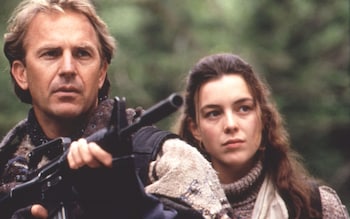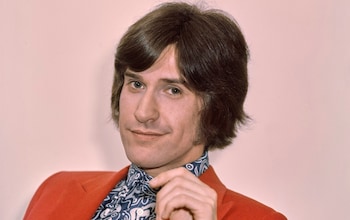Here is the question that will scrape at the souls of all critics – this one included – who found themselves enjoying the new Beverly Hills Cop film. Is it actually good, or extremely accurate?
The original trilogy, released between 1984 and 94, largely wasn’t much good at all. But it was a model example of a lost strain of Hollywood movie-making, in which hot young stars were afforded a platform to do whatever it was that people already liked about them, with value added in the form of car chases and shootouts. And in Eddie Murphy’s case, that meant his motor-mouthing comic shtick – which, in a law enforcement context, made him a dream undercover man, capable of amusingly wheedling his way in and out of various life-or-death crises.
This belated sequel, produced like the first by Jerry Bruckheimer, but developed by Netflix, does not attempt to refit the old Beverly Hills Cop formula to the 2024 cultural landscape. In fact, it virtually does the opposite. Because here is a legitimately big-budget action comedy (costing $150m, according to reports) that makes zero concessions to changes in taste and technology over the last 40 years.
OK, nearly zero. I spotted just one conspicuous use of computer graphics, when Murphy’s Axel Foley drives an electric buggy down a flight of stairs. And unlike previous missions, Foley’s latest investigation (into a drug-running conspiracy; not that it matters) doesn’t entail an arbitrary detour to a strip club or a Playboy-sponsored volleyball tournament.
Otherwise, first-time director (and ad-world veteran) Mark Molloy and his team uncannily recreate the original film’s rhythm, texture and spirit. The photography has grubbiness and grain, with sunsets that feel baked into the celluloid. The plot is stunningly arbitrary – an excuse to cycle the now-63-year-old Murphy through a string of fast-talking skits of variable quality. Vehicular pursuits are crunchy, honest and numerous. And Lorne Balfe’s synth score is outrageously prominent, with its regular re-workings of Harold Faltermeyer’s classic keyboard-prodding theme.
Murphy is on bright, lively form, and seems to be enjoying the experience. Per the opening snow-plough chase, set to the Bob Seger track Shakedown (one of many tracks repurposed from the earlier instalments), his Axel is still wreaking havoc in blue-collar Detroit. But he’s lured back to the glamorous Los Angeles suburb for a fourth time after his estranged daughter Jane (Taylour Paige), a principled young lawyer working in the city, becomes embroiled in a pro bono case that catches the eye of some murderous goons.
The script lobs us the odd meta-joke: there’s some fun background ribbing of Liam Neeson and Sylvester Stallone, and a line about 1994 “not being [Axel’s] finest hour,” in reference to the dismal Beverly Hills Cop III. And alongside the new cast members, who include an admirably dialled-in Joseph Gordon-Levitt as Murphy’s latest strait-laced partner, there are a number of returning faces, some noticeably tighter than back in the day. But broadly, what surprises most about Axel F is its staunch commitment to not surprising you in the slightest.
“This isn’t your mother’s Mean Girls,” ran the mischievous campaign for last winter’s musical remake of that millennial hit. But this absolutely is your father’s (and grandfather’s) Beverly Hills Cop, and for all its brazen route-one idiocy I ended up wanting to give it a hug.
15 cert, 115 mins. On Netflix from July 3
Disclaimer: The copyright of this article belongs to the original author. Reposting this article is solely for the purpose of information dissemination and does not constitute any investment advice. If there is any infringement, please contact us immediately. We will make corrections or deletions as necessary. Thank you.




